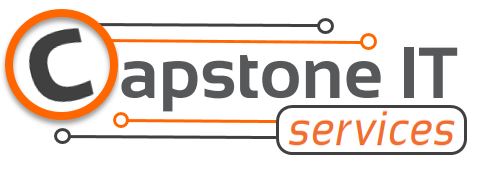Discover essential best practices for effectively securing your mobile devices, from using strong passwords to using virtual private networks (VPNs) and keeping apps up to date. These simple steps can prevent costly data breaches and keep your company’s sensitive information safe from cybercriminals.
Most breaches don’t start with a “super hacker.” They start with normal people doing normal things: clicking a slick-looking link, reusing a password, ignoring an update, or saving a file in the wrong place. The fix isn’t complicated tech—it’s consistent habits.
Below are four habits we help our clients build and reinforce. They’re simple. They’re repeatable. And they work.
- Communication: Make Security Part of the Conversation
- 60-second phishing tip at the start of staff meetings.
- “Scam of the Month” alert: a short screenshot + what to do.
- Report-it-first culture: Create one obvious place to forward suspicious emails (e.g., phish@yourdomain.com). Reward people who report.
- Compliance: Protect Trust, Not Just Checkboxes
- Policies that match how you actually work (Microsoft 365 usage, remote work, file sharing).
- Documented training & patching (auditors—and cyber insurers—love this).
- Access controls + MFA on every cloud app that supports it.
- Email security & data loss prevention tuned for your workflows (e.g., preventing SSNs or client names from leaving the org by mistake).
- Continuity: Practice Recovery Before You Need It
- 3-2-1 backups (onsite + immutable offsite + cloud) monitored daily.
- Quarterly restore tests—not just “green lights,” but real file/app restores.
- Ransomware runbook: Who does what in the first 30 minutes.
- Tabletop exercises twice a year with leadership, finance, and legal.
- Culture: Make Good Security the Easy Path
- Password managers for everyone; no sharing in Slack/email.
- MFA everywhere (Microsoft 365, finance apps, remote access, line-of-business apps).
- Least-privilege access by default. Temporary admin only when needed.
- Automatic patching of Windows/macOS, browsers, and third-party apps.
- Safe AI use guidelines (Copilot, ChatGPT): no client data, no secrets, approved prompts.
Security shouldn’t live in the server room. It should live in your staff meetings, huddles, and emails.
Quick wins we recommend (and run for clients):
What we bring: short trainings, Florida-specific scam briefings (we see a lot of wire fraud attempts on local firms), and phishing simulations that coach—not shame—your team.
Whether you’re a law firm protecting client confidentiality, a medical practice navigating HIPAA, or a financial services firm handling PII, compliance is about trust and proof.
Make it real:
What we bring: policy templates, security awareness training, EDR, DNS filtering, and a 24/7 SOC—plus guidance that maps controls to HIPAA/PCI/ABA expectations without slowing your team down.
Backups are table stakes. Recovery time is the business outcome.
Your continuity checklist:
What we bring: a BCDR plan sized for 10–100-user environments, rapid restore options for Microsoft 365, and business-class hardware that shortens downtime when something fails.
People are your first (and best) control—if you make the secure choice the default.
Standards we set for clients:
What we bring: configuration baselines, enforcement through device management, and simple, plain-English “How we work securely” guides that new hires can actually follow.
Why Capstone IT?
We’re a Palm Beach Gardens MSP serving businesses across the Treasure Coast and Palm Beaches—law firms, financial firms, medical offices, manufacturers, and nonprofits. Our local team runs the tools, the training, and the “Capstone Way” processes so your people stay productive while your risk stays low.
- Co-Managed or Fully Managed IT
- 24/7 Monitoring (EDR + SOC) & DNS Filtering
- Microsoft 365 Security Hardening & Copilot Guardrails
- Backups & BCDR with real restore testing
- Employee Onboarding/Offboarding that closes security gaps
Security isn’t a one-time project. It’s a set of daily habits your team can actually keep. We’ll help you put them in place—and keep them there.
Ready to Put These Habits to Work?
Cybersecurity Awareness Month is the perfect time to get ahead of risk. Let’s start with a free, confidential Cybersecurity Risk Assessment for your South Florida business. We’ll highlight the quick wins, the must-fix gaps, and a clear plan to strengthen:
- Communication
- Compliance
- Continuity
- Culture
Book your discovery call and let’s build a cyber-smart workplace—one practical habit at a time.

